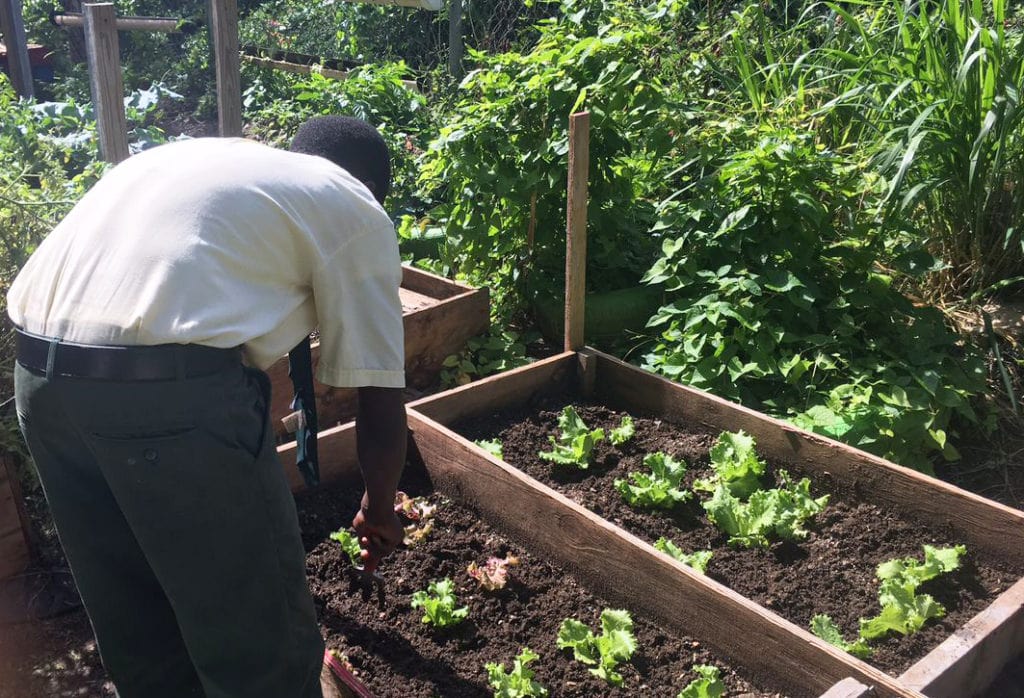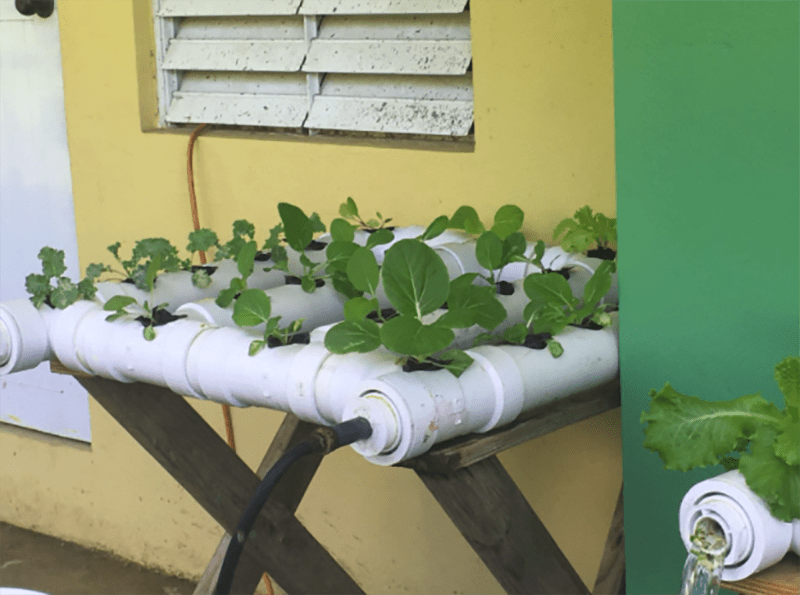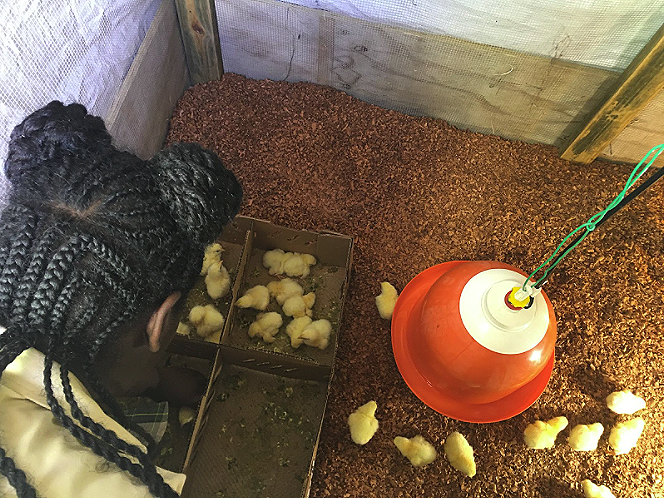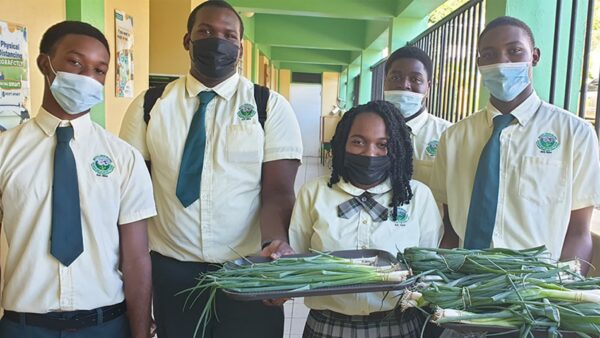Hundreds of students at the British Virgin Islands Seventh-day Adventist (BVI SDA) Secondary School in Tortola are contributing to their community and helping fund the school, thanks to agricultural science courses that teach healthy lifestyle choices and promote a sustainable way of life.
Primary school-aged students are involved in planting vegetables while eighth through 12th graders enrolled in the elective class are planting, studying, and experimenting on a variety of seeds, as well as raising chickens.
Lisa Peters-Powell, the agricultural science teacher, said the entire school has been excited about the initiative and how it takes the students’ education to the next level. “The agriculture program is intended to develop the skills needed in their future careers and put into practice what they have learned in the classroom,” she said.

Students learn to plant and to harvest, to start seedlings, and to preserve seeds, Peters-Powell explained. They are allowed to keep a small portion of the produce after harvesting, but most of it is sold and proceeds are returned to the school, she added. “They will carry this knowledge and experience with them throughout their lives and even teach it to their children,” she said.
The experience also allows for connections with the local community. “Senior students relate well with the community as they have marketed their commodities like chickens and vegetables in several neighborhoods. They reach out to parents and others and there are also announcements to the Adventist community [about] agricultural products for sale,” Peters-Powell said. “It’s been a big help for the community and the school. This is truly a life changing experience.”
The smiles on the participants’ faces speak volumes, Peters-Powell said.
Jade Smith’s enthusiasm was evident. She is a senior enrolled in the course. “The two lessons that will stay with me are animal production and plant farming — the organic and inorganic methods,” she said.
The practical assessments attached to science topics were most useful to fellow senior Jada Barnwell, who said she was impressed with the poultry farming techniques and her new ability to identify all kinds of plants.
Delroy Prince, a senior, was inspired by the practical side of the lessons and added, “I learned a lot about selling produce in agriculture, which was quite shocking because I didn’t realize how accounts and different subject areas are all incorporated in agriculture.”

Shadae Brewley, another senior, said she appreciated the teacher’s creativity as well as the vital link between farming and consumption. “I learned how to raise chickens and how agriculture is really important to us,” she said.
According to Peters-Powell, the senior class recently evaluated the growth rate of green onions, or scallions, using both cow manure and synthetic fertilizer. Their findings are part of the school-based assessment criteria for the 2022-2023 examination. Peters-Powell said the research carried out by high school seniors is mainly for the Caribbean Secondary Examination Council (CSEC), otherwise known as CXC. “The school also uses its findings to guide its gardening and animal husbandry practices,” she added.
Agricultural science is among the exit examinations offered by the CSEC, and the BVI SDA Secondary School has enjoyed a 100 percent passing rate among its students since 2014, Peters-Powell reported. She affirmed that the school’s success can be attributed to God’s constant guidance and teaching methods outlined in the Bible, which have enabled her to help students achieve their individual goals.
The science program satisfies the CSEC standards that the British Virgin Islands government has placed on participating education entities, requiring them to maintain a vibrant garden at each center of learning, Peters-Powell said.

The knowledge and skills shared through the program continue to make a positive difference in the lives of teachers, students, and the community, school officials said.
“We are excited, not only for the educational opportunities the program brings but also for the chance to preserve the agricultural legacy,” Wade Tobin, principal of the BVI SDA Secondary School, said. “We have been a part of an agricultural community and it is an honor to carry on the tradition of our founders.”
BVI SDA Secondary School in Tortola has 300 students in primary and secondary school. The school was established in 1954 as a primary school and added a secondary school division in 2007.
The original version of this story was posted on the Inter-American Division news site.


